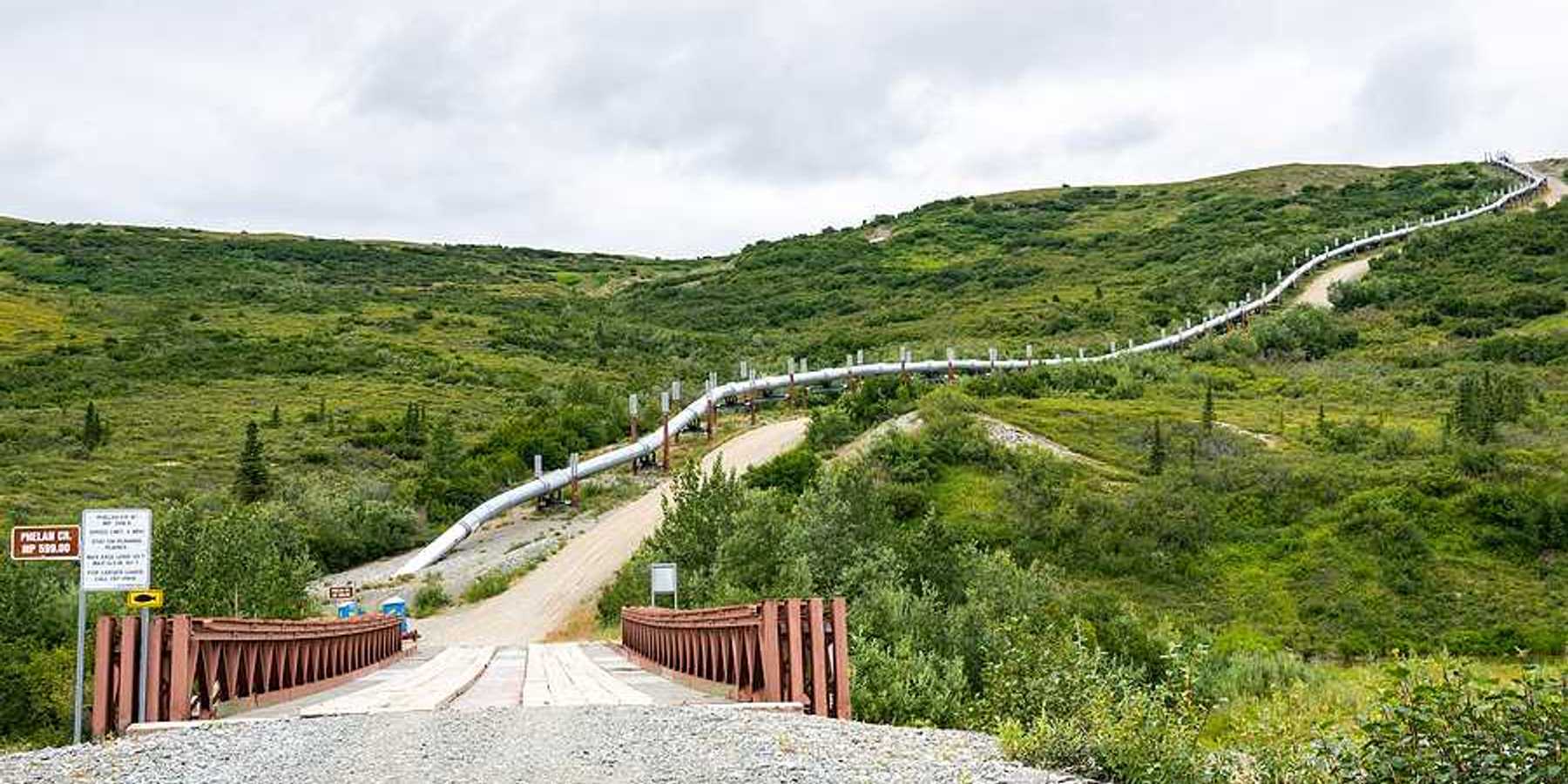united states
Drought intensifies across the eastern US
A severe drought has expanded from the Ohio Valley to the South, impacting more than a dozen states and prompting emergency declarations in some areas.
In short:
- The eastern U.S. is experiencing a "flash" drought due to record heat and lack of rain, affecting more than a dozen states from Ohio to Georgia.
- Severe drought conditions have prompted a state of emergency in West Virginia and disaster relief loans from the USDA for affected regions.
- The National Weather Service forecasts above-average rainfall in August, which could ease drought conditions in some areas.
Key quote:
It's "probably one of the driest years I've seen."
— Owner of Higson’s Farm in Wiley Ford, West Virginia
Why this matters:
Prolonged drought conditions threaten agriculture, water supply and increase the risk of wildfires in affected regions. Anticipated rainfall could provide relief, but significant precipitation is needed to mitigate ongoing drought impacts.
American solar firms request federal action against Asian competitors
American solar manufacturers are calling for the U.S. government to impose measures against Asian countries allegedly dumping subsidized panels into the market, arguing this threatens the domestic industry.
In short:
- U.S. manufacturers argue that solar panels subsidized by China, but manufactured in other Asian countries, are damaging the U.S. market.
- The petition targets imports from Cambodia, Malaysia, Vietnam and Thailand, which represent 84% of U.S. solar panel imports in the last quarter of 2023.
- The controversy stirs debate within the solar sector, with some warning that tariffs could disrupt growth and escalate costs for consumers.
- China responded that their leading place in the global solar panel market is attributable to "strong performance and full-on market competition, nut subsidies."
Key quote:
"We are seeking to enforce the rules, remedy the injury to our domestic solar industry and signal that the U.S. will not be a dumping ground for foreign solar products."
— Tim Brightbill, attorney for the American Alliance for Solar Manufacturing Trade Committee, the group that filed the petition.
Why this matters:
American firms often argue that Chinese and other Asian manufacturers benefit from significant government subsidies, lower labor costs and less stringent regulations. This can result in lower production costs and cheaper products, making it difficult for American manufacturers to compete on price.
Be sure to listen to Agents of Change senior fellow Azmal Hossan as he talks about an ambitious effort he’s part of to get the U.S. and China working together on climate change.
Visit EHN's energy section for more top news about energy, climate and health.
Europe reassesses its heavy reliance on US energy
In the wake of Europe's pivot from Russian to American energy sources, concerns about dependency and sustainability surface.
In short:
- Europe's shift to U.S. liquefied natural gas (LNG) post-Russia invasion has sparked debate on over-reliance and future energy security.
- President Biden's halt on new LNG projects reflects climate concerns but stirs European fears of supply shortages and economic impact.
- Analysts and industry insiders call for a balanced approach to energy sourcing, emphasizing the need for diversification and sustainability.
Key quote:
"Texas is known for two things: barbecue and gas. There's money being made and the people making the money don't look like me and they don't live in Port Arthur."
— John Beard, Port Arthur, Texas resident
Why this matters:
While LNG is seen by some as a bridge fuel toward more renewable energy sources, its role in Europe's energy mix is poised to grow in the short to medium term as the continent seeks to balance energy security, economic, and environmental objectives. However, the environmental impact of fracking, methane emissions associated with natural gas, and the carbon footprint of LNG transport raise concerns about the sustainability of relying heavily on LNG.
China's green tech surge sparks global trade tensions
China's rapid expansion into renewable technology, including becoming the world's largest producer of solar cells, is raising concerns over potential unfair competition in the U.S. and Europe.
In short:
- China dominates the global market in solar panels, electric vehicles, and lithium-ion batteries, raising alarms in Western countries.
- The U.S. and Europe are investigating China's trade practices, worried about the impact on their own renewable energy industries.
- Chinese companies are looking abroad for profits, potentially pushing American and European competitors out of the global market.
Key quote:
“From a Chinese perspective, their industrial policy really worked. Now they are starting to hit walls.”
— Nis Grünberg, a researcher at the Mercator Institute of China Studies
Why this matters:
As the world grapples with the urgent need to combat climate change, China's leadership in green technology offers a glimpse into a future where renewable energy and sustainability take center stage.
Be sure to listen to Agents of Change senior fellow Azmal Hossan as he talks about an ambitious effort he’s part of to get the U.S. and China working together on climate change.
New oil and gas projects pose a threat to climate goals
Despite clear warnings from climate scientists, a surge in oil and gas projects led by the U.S. is setting the stage for a significant overshoot of the Paris Agreement's global warming limits, a new report warns.
In short:
- A recent report indicates a significant increase in oil and gas extraction projects, particularly led by the U.S., potentially undermining global climate objectives.
- Current and planned fossil fuel activities are projected to far exceed the extraction limits advised by climate scientists, risking surpassing the critical 1.5C global warming threshold.
- Major oil producers continue to prioritize new discoveries and expansions, despite clear scientific advice against further fossil fuel exploitation.
Key quote:
"Despite the constant and clear warnings that no new oil and gas fields are compatible with 1.5C, the industry continues to discover and sanction new projects."
— Scott Zimmerman, project manager of the global oil and gas extraction tracker at Global Energy Monitor
Why this matters:
Despite global commitments to reduce carbon emissions and transition toward renewable energy sources, the U.S. maintains a significant stake in fossil fuel development, both domestically and internationally. These projects, spanning from drilling in Alaska to offshore operations in the Gulf of Mexico, signify a robust pursuit of energy independence and economic growth but also raise critical concerns regarding their compatibility with global climate goals.
Op-ed: Biden’s Arctic drilling go-ahead illustrates the limits of democratic problem solving.
Air quality in the US set to worsen, affecting millions by 2054
A new report predicts a 50% increase in Americans exposed to unhealthy air by 2054, intensifying public health concerns.
In short:
- The First Street Foundation report reveals that one in four Americans currently face unhealthy air quality, a figure expected to rise significantly.
- Climate-induced wildfires and heatwaves are negating progress made by federal clean air regulations.
- Exposure to PM2.5 particles, linked to serious health issues, is increasing with no safe level of exposure identified.
Key quote:
"If we’re going to start thinking about solutions, we have to start combating the origin of the air pollutants, which are wildfires and extreme heat."
— Jeremy Porter, head of climate implications research at First Street Foundation
Why this matters:
This escalating air pollution crisis directly impacts public health, particularly in vulnerable communities. Exposure to air pollution over long periods of time is linked to premature deaths via heart disease and COPD; while short term exposure is linked to reduced lung function, increased hospital visits due to breathing problems and restricted blood flow to the heart.
US lawmakers confer with world leaders at COP28
Domestic U.S. climate politics played out on an international stage this weekend at COP28, as a bipartisan congressional delegation mingled with world leaders and touted President Biden’s climate record.









